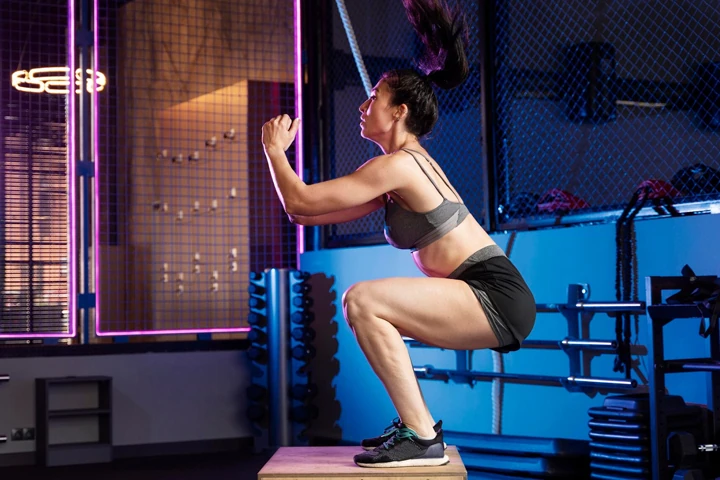Personal fitness training is a dynamic industry. Trainers’ primary focus has shifted away from just assisting their customers in becoming physically fit. The ever-expanding use of technology in our daily lives is another challenge they must now face. Fortunately, there is hope in the form of artificial intelligence (AI).
In the fitness world, AI may assist with exercise data analysis, comprehend how consumers train, and design personalised training programmes that meet the customer’s performance and objectives. Therefore, AI can contribute to improving and personalising everyone’s exercise experiences.
AI and Machine Learning in Fitness Training
AI has been rapidly gaining popularity in the health and fitness sector. Exercise regimens and diet regimes that were once general are now becoming highly personalised. Big data is the hidden ingredient that gives machine learning and artificial intelligence their abilities. The vast amount of data that has been gathered, scraped, and created from multiple sources is what this means.
Social media postings, Google inquiries, and eventually, data from wearables and fitness monitors might all be valuable sources of information. Your genetic information may even become part of it as it evolves. Big data may provide insightful information on your behaviors, tastes, and physiology regarding health and fitness.
How Does AI-Powered Personal Training Function?
Using AI to fuel a personal trainer is a fascinating new development that combines cutting-edge advances in AI technology and the fitness industry. A programme driven by AI might provide users with specific feedback and instructions for their workouts and other physical pursuits.
A human trainer may overlook tiny subtleties in a client’s fitness level, but AI can analyse their everyday motions (going to work, racing upstairs, lifting weights to gain weight, etc.) and alert them. In addition, IoT-enabled gadgets and sophisticated algorithms can monitor vital signs and movement to provide more comprehensive data on our physical well-being and fitness.
Uses of Artificial Intelligence in Personalised Health and Diet
Giving AI access to more of your data will increase its ability to tailor its recommendations for exercise and diet. The future has some exciting possibilities.
- Wearable Data and Artificial Intelligence Integration
Wearable fitness gadgets have risen in popularity, and for a good reason: they gather various biometric data that can be used to fine-tune your exercise and diet programmes. Third-party AI companies can use this information to provide suggestions tailored to your unique and ever-changing requirements.
Using information gathered from your wristwatch, for instance, AI products and services might advise you on the optimal time to eat after a strenuous bike ride so that you can rest easily the following day.
- Optimising Exercise and Diet Using Genetic Information
In a broader sense, your DNA sequence may provide a treasure trove of information that AI systems may access to enable unprecedented levels of customisation. Artificial intelligence systems will soon be able to analyse your raw DNA data and design exercise regimens considering your unique genetic makeup.
Because different people have different nutritional absorption rates and susceptibilities, genetic testing may help with meal planning. No more needless searching the internet for low-carb, gluten-free, or vegan meals.
Conclusion
AI-driven solutions will provide fitness and nutrition regimens that are unsurpassed by humans by using the power of cutting-edge algorithms, extensive data, and ongoing learning. AI enables health and fitness to be more intelligently, effectively, and profoundly customised. Examples include gene-guided fitness programmes, adaptable nutrition planning, and dynamic training routines.









































